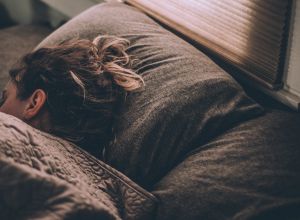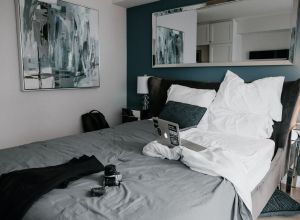A good nights sleep




It is normal that as you grow, to have an increased sleep requirement, you may need between 8-10 hours per night. Good sleep is vital for your mental, physical, social and educational development.
Poor sleep can affect mood, causing irritability and heightened emotional reactions. Prolonged poor sleep can be a factor in depression and anxiety.
What routines and habits promote good sleep?
Fortunately, there are many practical ways to develop and improve your sleeping routine and habits.
- Maintain a consistent sleep schedule, waking up and going to sleep at the same times (or within an hour of normal times even at weekends, allowing for some flexibility).
- Try to maintain the same sleep routines in the school holidays and when away from home.




Is there a link between screen use and poor sleep?
The scientific evidence base agrees that use of screens before going to bed is detrimental to sleep for people of any age. Using screens sends a signal to your brain that you should still be awake and makes it harder to go to sleep. The use of social media for example, can cause anxiety or an increased state of awareness at a time when you want your child’s brain to be in calm mode.
The Royal College of Paediatrics and Child Health recommend that children avoid looking at screens such as phones, tablets or computers in the hour before bed to reduce disruption to their sleep.
Sleep Phase Disorder
Some teenagers may develop a Delayed Sleep Phase Disorder where their bedtime is so delayed (typically the early hours of the morning 1am-4am) and they have difficulty waking up in the morning. This can become an issue where bedtimes are gradually moved later and later particularly in the school holidays. In order to treat this there is a gradual scaling back of sleeping times until they reach the desired time frame.
For more information visit the NHS: Sleep tips for teenagers


